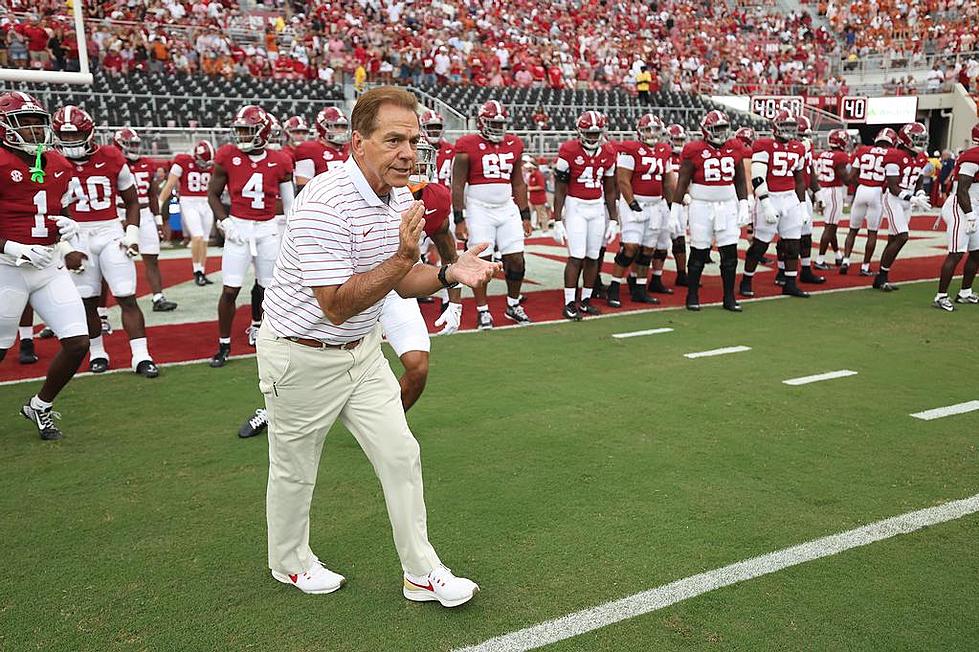
What Nick Saban Said In Birmingham Monday
As he does every season during Alabama's bye week, coach Nick Saban spoke Monday at the Monday Morning Quarterback Club in Birmingham. Afterwards, Saban spent a few minutes with the media. Here's a look at a few things he said.

“From a football standpoint, obviously, we have a bye week this week and we did a walk-through today, kind of watched the film and will practice Tuesday, Wednesday, Thursday and hopefully get some guys healed up and recovered and spend time working on things that we’re going to see these last four games that we haven’t been exposed to. That’s the kind of the goal.
"We’ve got a lot of injured players that we’re going to try to help improve during this time, and that’ll be the focus of three days.
“I think [this week] it’s about correcting. I think it’s about getting quality control on what you’ve done. See if there’s some tendency or something that you would add or subtract that would create more balance in what you do so that you’re not giving your opponent some tell on what you’re doing. It’s a lot about self-analysis and how can you implement that in a positive way.”
Saban was asked about an uncalled forearm shiver to the head of running back Roydell Williams by Tennessee in Saturday's win.
“I haven’t talked to the SEC about it. Basically, the protocol of what we do is – and this is to help officials, it’s not to complain – is, ‘OK, here’s some things that we just want an explanation of why it was called and why it wasn’t called.’ And they do a pretty good job. They review the film. They give you a written explanation of why it was called, why it wasn’t called.
"We’ll get that on that play just like other plays in the game.”

Saban added that after eight grueling games, the off week came at good time for his team.
“Yeah, but I think you want to keep the right mindset during the bye week. Psychologically, you don’t have to focus on a particular game, but I do think you need to focus on what do we need to do to improve. This is not a time to get relief syndrome, like, ‘OK, I’m just going to go mess around. I’m going to try to get better at the things I need to get better at. I’m going to try to improve fundamentally the best I can.’
"Physically, we do an analysis of, 'OK, what do we do workload-wise this week compared to other weeks.' It’s 43 percent. If you take from Sunday through Sunday, not playing a game next Saturday, not practicing today, only practicing three days, having five days off out of the next, whatever, eight, they do 43 percent of the workload. So that should help guys physically recover.
“There’s two things to this whole thing, and we do an analysis on all of our players. You get psychologically tired and you think, now you get into your feelings about how you feel, or are you actually physically not able to do the things at the same level you were doing them in the summer, in fall camp, earlier in the season?
"We only have one player on our team who is down like 2.9 percent. Everybody else is doing it at at least that level. So they may think they’re tired, but it’s probably more psychological from game plans and the grind of the season than it is actually physically.”
Is there a formula like that for his coaches?
“I don’t know. Is there an analytical way for anybody to know whether I need a break? I mean, we’ve got all these young bucks out there coaching. I know they don’t make them like they used to, but you ought to be worried about me, not them.
"I’m pushing the coaches to keep on keeping on so that we can get better analyzing what their players need to at their position individually and collectively as a group and what we need to do as a team to try to improve as a team. It’s not nearly as taxing for the coaches in the bye week as it is during a regular week, so there is some psychological relief for everyone.”









